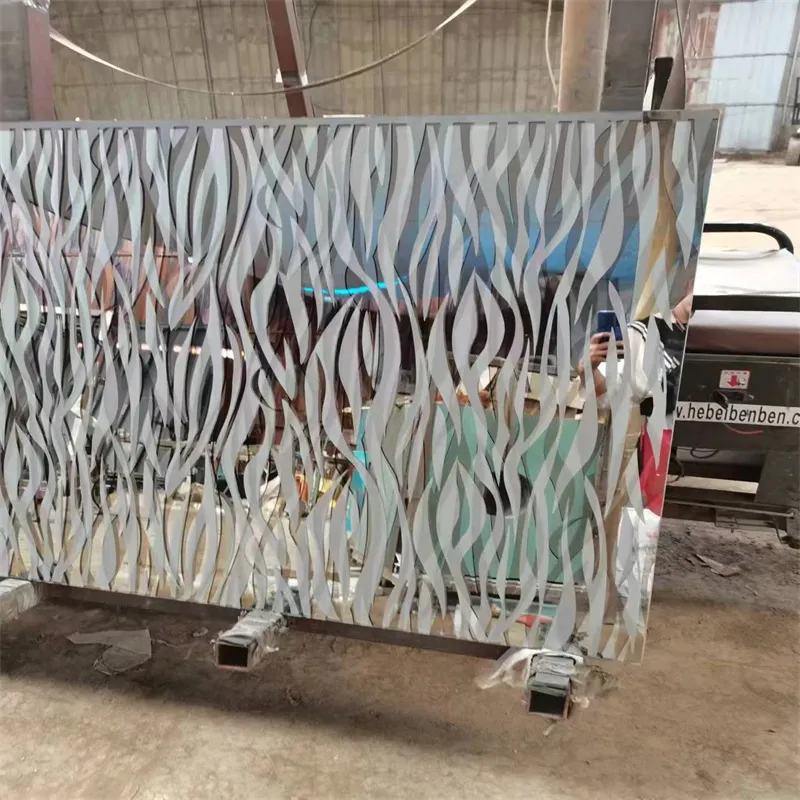Oct . 05, 2024 23:07 Back to list
tempered glass
The Advantages and Applications of Tempered Glass
Tempered glass, also known as toughened glass, is a type of safety glass that has been treated by heat or chemical processes to increase its strength compared to normal glass. Its unique properties make it an essential material in various applications, particularly in architecture, automotive industries, and consumer goods. This article aims to explore the benefits of tempered glass and its diverse uses.
One of the most significant advantages of tempered glass is its enhanced safety features. The production process involves heating the glass to high temperatures and then rapidly cooling it, which creates compressive stresses on the surface. As a result, tempered glass is four to five times stronger than standard glass of the same thickness. In the event of breakage, instead of shattering into sharp shards that can cause injury, it fractures into small, blunt pieces. This characteristic makes it an ideal choice for environments where safety is a paramount concern, such as in shower doors, glass partitions, and facades of buildings.
Another notable benefit of tempered glass is its ability to withstand extreme temperatures and thermal stress. This makes it suitable for situations where fluctuations in temperature are common. For example, in commercial kitchens or laboratories where hot equipment is prevalent, tempered glass can endure the heat without compromising structural integrity. This thermal resistance also extends to outdoor applications, where windows and doors can face varying weather conditions without risk of failure.
In addition to safety and temperature resistance, tempered glass offers excellent aesthetic appeal. Its clarity, transparency, and smooth finish make it a popular choice for architectural designs. Homeowners and designers often select tempered glass for railings, staircases, and large windows to create a sense of openness and to maximize natural light. Moreover, it can be produced in various tints and textures, allowing for customization to suit the design needs of any project.
tempered glass

The versatility of tempered glass also extends to its ease of maintenance. Unlike some other materials, tempered glass does not corrode, and it is highly resistant to scratching and staining. A simple cleaning solution and a cloth are usually all that is needed to maintain its appearance. This low-maintenance characteristic makes it a practical choice for both residential and commercial settings.
Moreover, tempered glass is increasingly being integrated into modern technology. In the automotive industry, for example, it is frequently used for side windows and rear windshields due to its strength and safety features. Many smartphones and tablets also incorporate tempered glass screens for enhanced durability and scratch resistance, catering to the demands of everyday use.
Lastly, tempered glass aligns with sustainable practices, as it can often be recycled. When disposed of correctly, tempered glass is processed into new glass products, supporting the circular economy and reducing waste.
In conclusion, tempered glass is a remarkable material that combines safety, strength, and aesthetic appeal. Its applications are extensive, ranging from architectural solutions to technological advancements. As society continues to prioritize safety and sustainability, the demand for tempered glass is likely to grow, making it a vital component in various industries. Its unique properties not only enhance functionality but also contribute to the overall design and safety of the spaces we inhabit.
-
Safety and Style with Premium Laminated Glass Solutions
NewsJun.24,2025
-
Reinvents Security with Premium Wired Glass
NewsJun.24,2025
-
Premium Float Glass Line for Modern Architecture
NewsJun.24,2025
-
Low Emissivity Glass for Energy-Efficient Architecture
NewsJun.24,2025
-
High-Performance Insulated Glass Solutions for Modern Architecture
NewsJun.24,2025
-
Elevates Interior Style with Premium Silver Mirror
NewsJun.24,2025
Related PRODUCTS














